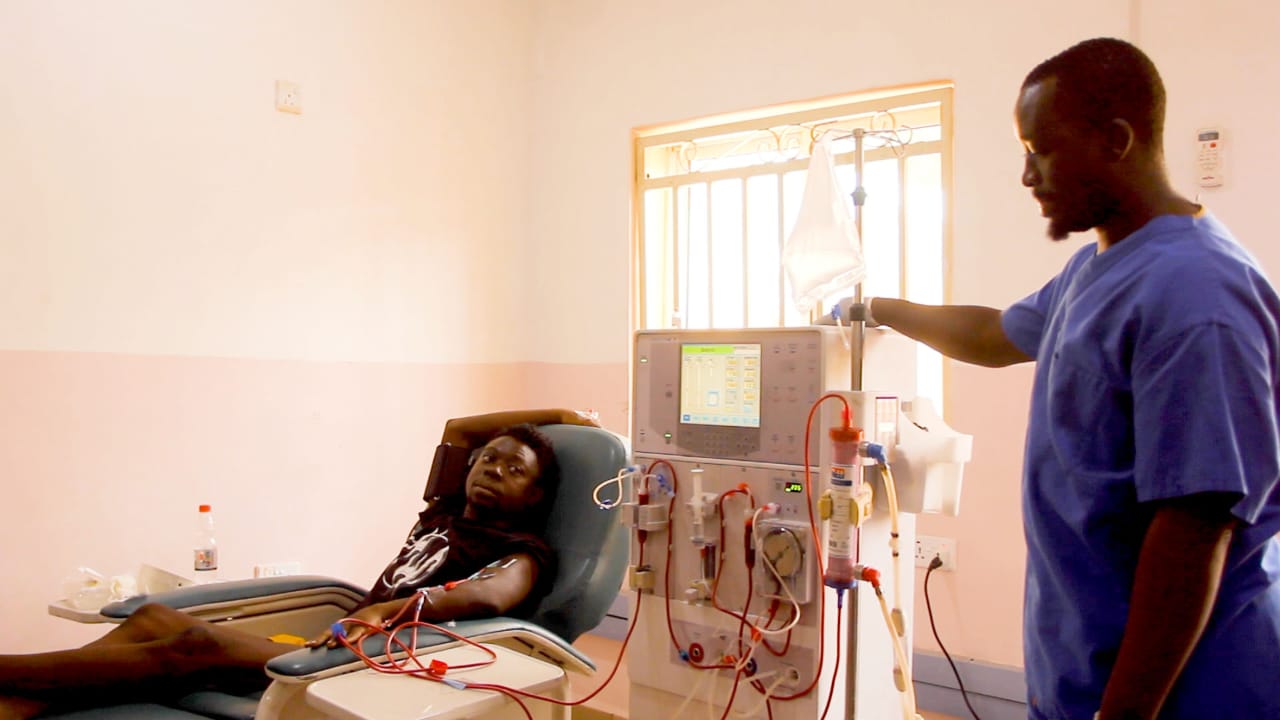
By Mahmud Mohammed-Nurudeen
Flies present in hospital wards could pose a significant risk to patients, particularly those who are more susceptible to infections during their hospital stay, as flies often land on patients in these environments.
Researchers from the Ineos Oxford Institute for Antimicrobial Research (IOI) at the University of Oxford have discovered that flies in Nigerian hospitals are carriers of bacteria resistant to crucial antibiotics, including those considered last-resort treatments.
The IOI scientists with Nigerian researchers, collected 1,396 flies from eight hospitals across six Nigerian cities. Flies were captured using sticky traps placed in hospital wards. Data on the hospital environment and antibiotic usage were also recorded. The collected samples were labeled and shipped to the IOI labs in Oxford for processing.
Once in Oxford, the samples were homogenized in saline to release the bacteria from the flies. The team then cultured the samples on selective agar plates and identified various antibiotic-resistant bacteria.
The team then screened the bacterial growth for the presence of antimicrobial resistance genes (ARGs) using PCR (polymerase chain reaction) tests. The bacterial species that tested positive for ARGs were identified and then subjected to further analysis. Researchers assessed the bacteria’s resistance to various antibiotics and used whole genome sequencing to examine the genetic structure of the drug-resistant bacteria.
The study identified 17 distinct species of bacteria in the fly samples. These bacteria were isolated and analyzed using laboratory test that checks how resistant or sensitive the bacteria are to various antibiotics and map out the entire genetic material (DNA) of the bacteria.
Antimicrobial resistance genes (ARGs) were detected in all variety of 17 different types of bacteria found in the fly samples across various hospital locations. Several of these bacterial samples exhibited resistance to several types of antibiotics, including beta-lactams and critical last-resort antibiotics like carbapenems and colistin.
Researchers discovered a significant presence of antimicrobial resistance genes (ARGs) at all locations, with 40% of flies found to have bacteria resistant to beta-lactam antibiotics, which include many common antibiotics and 8% carrying bacteria with with a specific gene (blaNDM), which is associated with resistance to even more potent antibiotics. The presence of these resistant bacteria makes treating infections more difficult, often requiring more expensive treatments.
The presence of the mecA gene, which makes bacteria resistant to methicillin, was identified in bacteria from 6.4% of flies. Multiple bacterial species carried this gene, including Staphylococcus aureus, a common cause of hospital-acquired infections.
A significant 86.8% of Staphylococcus aureus samples – a type of bacteria commonly found on the skin or in the nose of healthy people and can also cause a range of infections, from mild skin infections to more serious conditions like pneumonia, bloodstream infections, and infections of the heart valves were resistant to multiple drugs.
Bacteria from other species like Providencia spp., Escherichia coli, and Klebsiella pneumoniae also showed resistance to multiple drugs, further complicating treatment options for infections caused by these pathogens.
AMR mortality rates in Nigeria
According to 2019 data, Nigeria ranks 20th out of 204 countries in terms of age-adjusted antimicrobial resistance (AMR) mortality rates, with 263,400 AMR-related deaths recorded that year. This means that more Nigerians died from drug-resistant conditions than from malaria, respiratory infections, or cardiovascular diseases combined.
Nigeria’s first National Action Plan (NAP) for Antimicrobial Resistance (AMR), launched in 2017 and running until 2022, achieved only a 44% completion rate. While there was progress in areas like education and training, the plan faced significant gaps, including limited involvement from key sectors such as environment, agriculture, and animal health.
In response to the growing threat of Antimicrobial Resistance (AMR), the Government of Nigeria, in collaboration with the Federal Ministry of Health and the Nigerian Centre for Disease Control (NCDC), sought support from the World Health Organization (WHO) to develop the National Action Plan 2.0 (NAP-2.0) for the period 2024-2028.
In 2023, the WHO Country Office, along with the WHO African Regional Office and Headquarters, created a unified strategic approach to support the development of NAP-2.0. This strategy aimed to address the critical gaps from the previous NAP-1.0 implementation, improve coordination challenges, and better define the roles of various sectors. The objective was to ensure that NAP-2.0 was developed within the framework of the One Health approach, engaging multiple sectors such as health, environment, and agriculture.
AMR happens when infections become more difficult to treat because microorganisms such as bacteria, viruses, fungi, and parasites evolve to resist drugs. These microorganisms develop the ability to survive treatments that previously would have killed or inhibited their growth. The World Health Organization (WHO) has identified AMR as one of the most significant global public health threats, estimating that 4.95 million human deaths were linked to bacterial AMR worldwide in 2019.
Researchers’ responses
Scientific Lead at the Ineos Oxford Institute for Antimicrobial Research and co-author of the study, Dr. Kirsty Sands, stated that this research is one of the largest surveillance efforts to date examining the bacteria carried by flies in hospitals in low- and middle-income countries.
“We utilised high-throughput methods to analyse a large number of fly samples and isolated a range of resistant bacterial species, many of which cause significant clinical illness.”
The Project Lead at the Ineos Oxford Institute for Antimicrobial Research and co-author of the paper, Chioma Achi, expressed concern over the widespread presence of various multidrug-resistant bacteria in flies found in Nigerian hospitals. She emphasized that it is particularly troubling because there could be many more flies carrying multiple resistance genes than the study was able to detect.
“The data we’ve gathered is valuable evidence of the need for improved insect control measures in hospitals. We hope this study will provide a blueprint for future research into the role of flies in spreading AMR in hospitals in Nigeria and other low- and middle-income countries.”
The paper, titled “Flies as carriers of antimicrobial-resistant (AMR) bacteria in Nigerian hospitals: A workflow for surveillance of AMR bacteria carried by arthropod pests in hospital settings,” published in the Environment International journal, expands on the team’s earlier research conducted in a hospital in Pakistan. That study identified ants, spiders, flies, and cockroaches as carriers of multidrug-resistant bacteria, and established connections between these bacteria and those found in patients’ surgical site infections.








